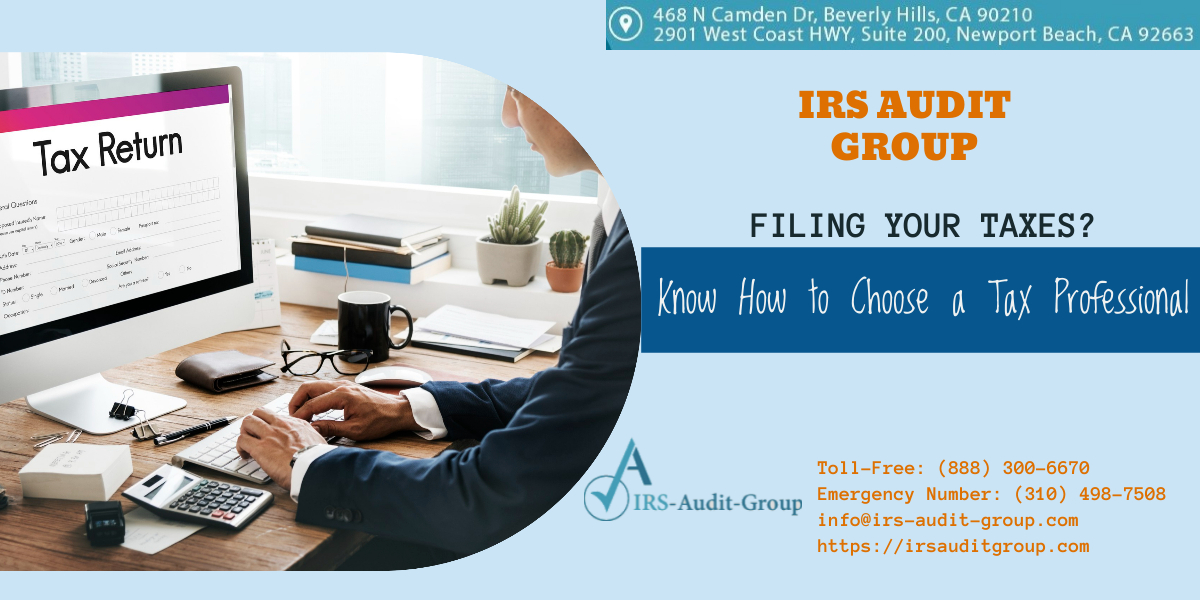Who are Tax Professionals?
Tax professionals are experts who offer tax-related services to individuals, businesses, and organizations. They are knowledgeable and trained in tax laws, rules, and procedures. They can be tax advisors, tax lawyers, enrolled agents, certified public accountants (CPAs), and tax preparers. These experts assist taxpayers in understanding their requirements, preparing and filing tax returns, resolving tax concerns, and making tax-saving plans. They also can help customers with a variety of tax-related concerns, including tax optimization, tax negotiations, tax compliance, and tax audits.
Why do We Need Them?
Filing taxes can be a more confusing and overwhelming process, especially for individuals and businesses that are not familiar with tax codes. This is where tax professionals help clients to solve their queries in filing tax returns. They provide guidance on tax planning and help identify tax-saving opportunities. Working with tax professionals is time-saving as they analyze tax structures, prepare strategies, and finalize the right documents and forms for filing. Tax professionals make sure that the filed returns are accurate and complete to minimize the risk of an IRS audit. They also provide tax audit representation services for the clients if there is any dispute with the IRS to resolve the issue. Tax professionals can reduce your financial burden by assisting in negotiating payment plans or settling debts. An experienced tax professional can help to face the complex world of taxes with confidence.
What are their Qualifications, and Eligibility?
Tax professionals should have IRS Preparer Tax Identification Number (PTIN) that is authorized to prepare federal tax returns. Enrolled agents, certified public accountants, and tax attorneys have unlimited representation rights before the IRS. The eligibility and skills required are as follows.
- Enrolled agents should pass a three-part Special Enrollment Examination and they must complete 72 hours of continuing education every 3 years. They have proficiency in federal tax planning, individual and business tax return preparation, and representation.
- Certified Public Accountants should complete their study in accounting in school or college and clear the Uniform CPA Examination In addition, CPAs must comply with ethical requirements and complete specified levels of continuing education in order to maintain an active CPA license.
- Attorneys should clearly state bar exams and they generally have ongoing continuing education and professional character standards.
Some prepare who don’t have the above credentials have limited representation rights. They can represent only the people for whom they have prepared returns and signed. Annual Filing Season Program Participants who have completed their course program and PTIN holders can also prepare tax returns.
How to Check Tax Preparer Credentials?
There are many individuals who claim to provide services as tax preparers. It is important to know their credentials before engaging in one. Choosing an incorrect tax preparer can result in poor tax filing and can even lead to disputes and tax audits. The IRS maintains a public list of specific tax professionals in order to assist taxpayers in determining the credentials and training of return preparers. Attorneys, CPAs, enrolled agents, enrolled retirement plan agents, enrolled actuaries, and Annual Filing Season Program Record of Completion recipients having valid PTINs for 2022 are listed in the searchable, sortable database along with their names, cities, states, and zip codes.
Who are Ghost Tax Preparers?
Ghost preparers are those who refuse and don’t sign the tax returns they prepare and pretend to be invisible. They refuse to digitally sign it as the paid preparer. prefer taking payment in cash and refusing to provide a receipt. They invent income to qualify their clients for tax credits. They also claim fake deductions to boost the size of the refund and direct the refund into their own bank accounts. IRS advises to beware of such tax preparers. They add more complexity to your filings than simplifying them. All tax preparers must have a valid Prepare Tax Identification Number (PTIN). IRS also makes it mandatory for tax preparers to provide a digital signature and PTIN at the end of the tax filing form.
How to Select the Suitable One Among the Many Tax Preparers?
When looking for a tax preparer, it is necessary to choose who is knowledgeable, reliable, and professional. Some of the measures to take before selecting a tax preparer are.
- Make sure to choose a tax preparer who can be available in case the IRS examines, returns, and has questions regarding how the filing was prepared.
- Avoid tax preparers who claim they can obtain larger funds.
- Ensure the preparer has PTIN with them.
- Choose the tax preparers who enter the PTIN on tax returns and sign them.
- Consider a Tax preparer who is available around months or years after filing the return so that they can represent on behalf of you if there is an IRS audit.
- Make sure the credentials are checked through the IRS official website.
IRS Audit Group is a tax representation company that has a group of expert tax professionals like layers, enrolled agents, and CPAs. They help clients in resolving their state audits and IRS audits by representing them. IRS Audit Group has its proprietary audit process from the beginning of free consultation with the clients until resolving the issue in favor of the taxpayers. Please contact us for more information. https://irsauditgroup.com/contact/
Telephone Number: (310) 498-7508
info@irs-audit-group.com

